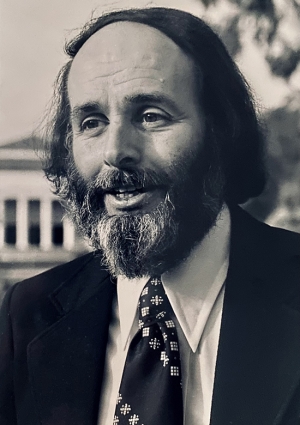Established in honor of Herman A. Lauter, Professor of Philosophy from 1963-1991, the Lauter Prize in Philosophy is presented annually to the author of the best senior comprehensive paper in philosophy.
Lauter Prize Winners
2024: Nora Manukyan - Aesthetics of Mathematics: First-Person Approach
2023: Sela Moretti-Hitchcock - Empathy, Integration, and Literature: What We Gain from Reading
2022 : Phoebe Patinkin - Daydreaming: A Virtuous Activity
2021: Serena Francisco - Oppression and Self-Love: From Baldwin to the Black Lives Matter Movement
Caroline Dahl - Love and the Epistemic Distance Between Us
2020: Jacob Eggert - Confidence and Insecurity in the Realm of Value
2019: Cléo Charpantier - (Re)Defining Disability, (Re)Valuing Dependence
2018: Ari Nord - Feminist Jurisprudence and Intersectional Identity
2017: Brad Kawano -

Herman A. Lauter Biography
Herman A. “Hal” Lauter, professor of philosophy emeritus, taught at Occidental from 1963 until his retirement in 1991. The Lauter Prize in Philosophy, presented annually to the best senior comprehensive paper in philosophy, was established in 2010 in his honor.
A native of Indianapolis, he received a B.S. in physics from Purdue, a master’s in philosophy from the University of Washington, and a Ph.D. in philosophy from UCLA. Prior to joining the Occidental faculty in 1963, Hal taught full-time at UC Santa Barbara during the 1962-63 academic year and was the recipient of a Danforth Foundation Teacher Grant for the 1966-67 academic year.
Hal published articles in aesthetics and the philosophy of science and was a member of the American Association of University Professors, the American Philosophical Association, and the American Society for Aesthetics. His travels took him to Canada, Mexico, Central America, Europe, Asia, and the South Pacific.
